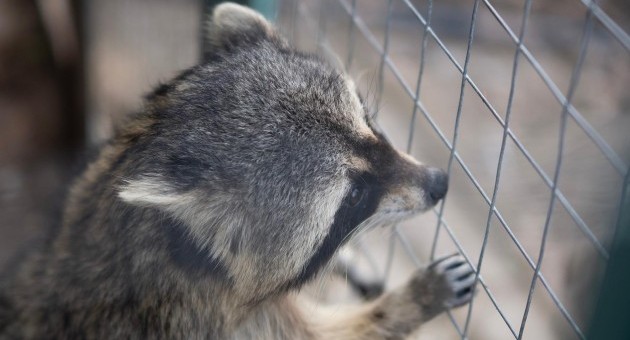The animal rights movement's effort to place the rights of animals above those of humans concerns me. A recent book, Rattling the Cage, by Stephen Wise argues that chimpanzees should be granted legal standing; in other words, personhood. His argument is that chimpanzees are more intelligent than mentally impaired humans. So, if we grant human rights to such defective humans, then we must also grant the same legal rights to these apes.
While skimming Wise's book at a local bookstore, I heard a child fall. I looked up to see a little girl, no more than two years old, sprawled face first on the floor in front of me. Expecting a cry of pain or shock, I was surprised when none arose. After a delay of perhaps three, four, or five seconds she uttered a rather matter of fact "Ow." At that moment, this child that had stumbled into my life became the focus of all my empathy and concern for my fellow humans. Wise's book evaporated from my consciousness in the face of this child's plight.
I watched her slowly pick herself up from the floor. It was then that I realized she was no average toddler. She got up by first straightening her legs and then slowly, with great effort, pushing back with her arms until she was able lift the rest of her body to a standing position. I paid close attention to her movements, her efforts to right herself were not normal. I looked to see if she would show Gowers' sign, a classic placement of the hand on the knee that I had seen so many times when my son Tim, afflicted with Duchenne Muscular Dystrophy, struggled to stand during the short time he was able to walk.
Relieved when she didn't show Gowers' sign in her righting maneuver, I optimistically assumed that she would outgrow this unusual behavior as she developed more efficient strategies for standing.
Unfortunately, my optimism was short lived. As she began to walk, she displayed a staggering gait. Maintaining her balance was a constant challenge, yet one that did not seem to cause her any distress. Surely this fall had not been her first, nor would it be her last. She stared at a display of books for a long time. Finally, she reached out to touch the display with her right hand in a curiously distant manner. She seemed to have little interest in using her left arm; indeed, for some time I worried that the arm might be impaired because it had completely disappeared into her pink sweater. Was her behavior due to tranquility, or was it a belabored effort to comprehend what she was seeing? She turned toward me but did not differentiate me from other things in the bookstore. I then realized that her facial characteristics were not like others: her eyes a bit too far apart, the nose a bit too flat at the top. I was devastated by the thought that she could be a victim of fetal alcohol syndrome. Fetal alcohol syndrome and fetal alcohol effects, a related disorder, result from maternal consumption of alcohol during pregnancy. It occurs most commonly as a result of binge drinking in which a large quantity of alcohol is consumed at one time during pregnancy. However, even moderate drinking of one drink per day during pregnancy can have adverse effects on the physical development of the child. For more information on FAS and FAE there is a web site www.nofas.org dedicated to this disorder.
I sit here now, aching with emotional hurt, asking "why should a cruel fate be inflicted upon such a beautiful child?" I have no answer. I am lost in my grief. I want to help, but I don't know what to do.
Then, as if to pour salt into my wounds, the extremist animal rights group People for the Ethical Treatment of Animals which received more than $16 million in donations last year, began an advertising campaign to encourage college students to drink beer rather than milk. My sadness turned to anger as I asked myself how many more unborn children will now fall victim to this devastating disease which is already the leading cause of preventable birth defects. Worse yet, was to hear news broadcasters joking about the PeTA's campaign, providing added publicity for this antisocial crusade.
Fortunately, Mothers Against Drunk Driving took PeTA to task for their irresponsible actions and forced them to back down from their drink beer campaign. But please still realize that there is no safe level of alcohol consumption during pregnancy! Any alcohol consumed by a pregnant women has the potential to adversely affect her child.
Beyond this however, this is a compelling example of how animal rights groups violate human rights in their efforts to liberate animals from our dominion. Every dollar given to animal rights groups, no matter how noble their name may sound, no matter how vivid their protestations of animal abuse, is money given to an organization working against human rights. Every one of us, whether we are a beneficiary of biomedical research, consumer of animal agriculture, or a pet owner, are potential victims of their campaigns against humanity. A recent report by the Southern Poverty Law Center, one of the nation's leading civil rights organizations, warns that the extremist animal rights philosophy is now being consolidated into the agenda of established hate groups .
I am now more than ever convinced of the urgent need to oppose those who place the rights of animals above those of humans. The absurdity of granting legal personhood to animals and the elimination of animal agriculture can only lead to an anarchy that will prevent our Society from helping this brave little girl and all the rest of those who don't quite meet the requirements of normality, meet their potential. Wise's animalegalisms and PeTA's media shenanigans should fade from our consciousness in the face of real human needs.
But maybe, just maybe, by sharing the story of this tiny courageous child, facing her adversity without complaint, through her we can better understand how important it is to be human and how important it is to love and help our fellow human beings.
Yes we should, and we do, care for and respect animals as our traveling companions on spaceship Earth. But let us never forget that humanity is our species and that our first and primary obligation is to ourselves. We have enacted laws that prescribe how we should interact with and treat animals. Inherent in those laws are a respect for the sentience of animals. But we should never let that concern compromise our primary responsibility to our fellow humans.
 |
Like this article? Don’t forget to share, like or follow us |
 |
NAIA WEEKLY ROUNDUP
FEATURED & LATEST ARTICLES
GET THE NAIA WEEKLY ROUNDUP VIA EMAIL FOR FREE
Stay Connected with The NAIA: Sign Up for The Weekly Roundup
Join our FREE newsletter and community of animal advocates and receive The NAIA Weekly Roundup straight to your inbox. Stay in the loop with the latest news, events, and ways you can make a difference in the lives of animals. Sign up now to stay informed to create positive change!
Sign Up




 NYCLASS Lawsuit, Penguin Retirement Homes, Beagle Noses, and More!
NYCLASS Lawsuit, Penguin Retirement Homes, Beagle Noses, and More!
 Animal Liberationist Convicted, Human-Elephant Conservation and Conflict, and More!
Animal Liberationist Convicted, Human-Elephant Conservation and Conflict, and More!
 Conference Roundup, Smuggling Bust, Elephants and an Animal Rights Lawsuit, and More!
Conference Roundup, Smuggling Bust, Elephants and an Animal Rights Lawsuit, and More!
 A Question of Neglect, A Legendary Primatologist Passes Away, and More!
A Question of Neglect, A Legendary Primatologist Passes Away, and More!



